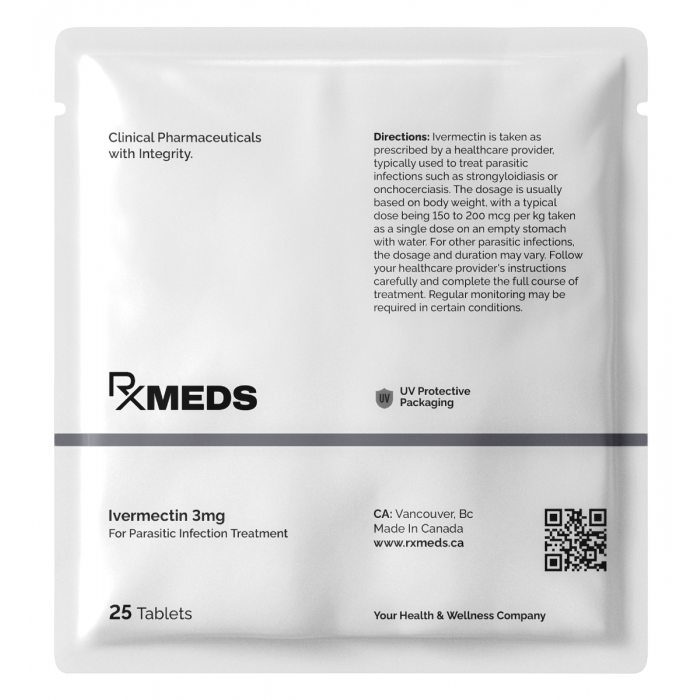Read More
What is Ivermectin (Stromectol)?
Ivermectin is an antiparasitic medication used to treat a variety of parasitic infections. It works by paralyzing and killing parasites or preventing them from reproducing. Ivermectin is commonly prescribed for conditions such as river blindness (onchocerciasis), intestinal strongyloidiasis, and scabies. It is also used in veterinary medicine to treat parasites in animals.
In certain cases, ivermectin may be used off-label for other parasitic conditions or experimental treatment of viral infections under medical supervision.
- Generic name: ivermectin
- Brand names: Stromectol, Soolantra (topical), Sklice (topical)
- Drug classes: Antiparasitic agents
Warnings
- Do not use ivermectin if you are allergic to it or any of its components.
- Consult your doctor before use if you have liver or kidney disease.
- Avoid using ivermectin without proper medical supervision for off-label purposes.
- Pregnant or breastfeeding individuals should only use ivermectin if prescribed by a healthcare provider.
Before Using This Product
- Inform your doctor if you have a history of liver or kidney disease.
- Disclose any other medications, including over-the-counter drugs and supplements, to avoid potential interactions.
- Ensure proper diagnosis of parasitic infection before using ivermectin.
- Discuss the risks and benefits with your healthcare provider if you are pregnant or breastfeeding.
How Should I Take Ivermectin?
- Dosage: The dosage depends on the condition being treated but is typically prescribed as a single dose based on body weight.
- On an Empty Stomach: Take ivermectin on an empty stomach with a full glass of water.
- Follow Instructions: Adhere strictly to your healthcare provider's dosage instructions and do not self-medicate.
What Happens If I Miss a Dose?
- If you are taking ivermectin as a single dose, missing a dose is unlikely.
- If part of a multiple-dose regimen, take the missed dose as soon as you remember.
- If it is close to the next dose, skip the missed dose and resume your normal schedule. Do not double doses.
What Happens If I Overdose?
- Symptoms of overdose may include nausea, vomiting, diarrhea, abdominal pain, or seizures.
- Seek emergency medical attention or contact a poison control center immediately if overdose symptoms occur.
What to Avoid
- Avoid drinking alcohol while taking ivermectin, as it may worsen side effects such as dizziness or drowsiness.
- Avoid driving or operating heavy machinery if you feel dizzy or lightheaded after taking ivermectin.
- Avoid self-medication with ivermectin without a proper prescription or diagnosis.
Ivermectin Side Effects
Common side effects may include:
- Nausea
- Dizziness
- Diarrhea
- Headache
- Fatigue
Seek immediate medical attention if you experience severe or unusual symptoms, such as:
- Allergic reactions, such as swelling of the face, lips, or tongue
- Severe abdominal pain or persistent vomiting
- Vision changes
- Seizures or loss of consciousness
 |
|
